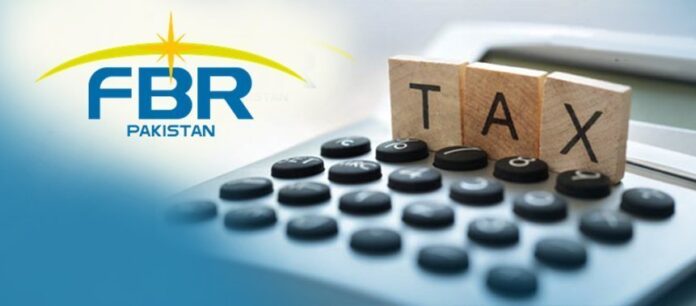Pakistan is currently facing a tax compliance gap estimated at approximately Rs5.8 trillion annually, which constitutes about 6.9% of the country’s Gross Domestic Product (GDP).
This gap underscores a substantial issue with tax evasion across various sectors.
A detailed presentation delivered to Prime Minister Shehbaz Sharif and the Special Investment Facilitation Council (SIFC) highlighted the gravity of the situation.
Based on fiscal year data for 2022-23, the evasion spans multiple sectors, with the smuggling of petroleum, oil, and lubricants (POL) products alone accounting for an estimated Rs996 billion in lost revenue.
The illegal import of oil through Iran and other border areas was identified as a key contributor to this shortfall.
The breakdown of tax evasion across sectors further includes significant losses in the retail sector, estimated at Rs888 billion, the transport sector at Rs562 billion, independent power producers at Rs498 billion, and smuggled-prone items at Rs355 billion.
The evasion in exports and real estate was estimated at Rs342 billion and Rs148 billion, respectively.
The ‘others’ category encompasses a broad range of sectors, contributing to an estimated Rs1.607 trillion in annual tax evasion.
Notably, sales tax evasion represents the largest portion of this gap, potentially reaching up to Rs2.9 trillion annually.
Additionally, customs-related tax evasion, including under-invoicing and smuggling, is believed to be around Rs600 billion per year.
Contrastingly, the International Monetary Fund (IMF) in its Diagnostic Report has suggested that the policy level tax gap is not significantly high, estimating it could reach up to 12.9% of the GDP.
The government’s fiscal dynamics were also scrutinized during the presentation.
Federal tax revenues were reported at 9.1% of GDP, with non-tax revenues contributing an additional 1.2%.
Provincial taxes add approximately 1% to the GDP, culminating in total revenues of 11.4% of GDP.
When juxtaposed with expenditures—12.9% of GDP for the federal and approximately 6.1% for provincial—the country faces a notable gap of 7.6% of GDP between total revenues and expenditures.
Experts argue that addressing tax compliance could significantly reduce fiscal deficits, potentially adding 5.8% of GDP to the national budget annually.
The ongoing fiscal deficit is currently managed through domestic and external borrowing, exacerbating the country’s debt situation.
In response to these challenges, the government is contemplating a comprehensive restructuring of the Federal Board of Revenue (FBR) and implementing several initiatives aimed at enhancing tax collection and compliance.
These include separating Tax Policy Office functions, introducing digital invoicing, and enhancing collaboration with the National Database and Registration Authority (NADRA), among other reforms.
These measures are part of a broader strategy to improve governance and oversight within Pakistan’s tax system.





I really like the entertaining game Uno online, you can try it whenever you have free time with your friends!
Great
Good Reaceve